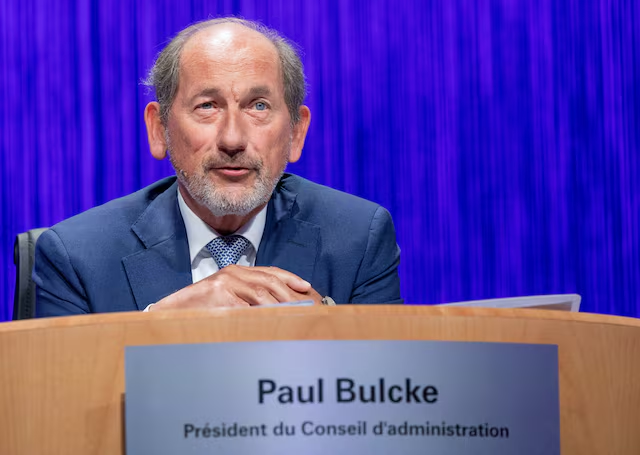News
Nestlé Investors Urge Chairman Paul Bulcke to Step Down, FT Reports

Nestlé (NESN.S) investors have called on Chairman Paul Bulcke to resign, following the departure of a second CEO in less than a year, the Financial Times reported on Saturday.
Shareholders told the FT that the dismissal of former CEO Laurent Freixe and the way the company handled the investigation into his conduct have heightened their concerns about Nestlé’s governance, prompting them to question Bulcke’s leadership decisions.
Alexander Stucky, founder of AS Investment Management, which represents the company’s founding family investors, told the newspaper, “I don’t think Bulcke will step down before April, but he should have resigned when Mark Schneider was forced out.”
Nestlé did not immediately respond to a request for comment from Reuters.
The Swiss food giant had abruptly removed Freixe in early September after he failed to disclose a romantic relationship with a subordinate.
Freixe’s dismissal came one year after his predecessor Schneider’s sudden departure and two and a half months after Bulcke announced he would step down next year.
A Nestlé spokesperson told the Financial Times that the two CEO departures are unrelated, and that Freixe’s conduct clearly violated the company’s code of ethics.
Bulcke, 70, a Belgian and Swiss citizen, has served as the board’s chairman since April 2017. He joined Nestlé in 1979 and served as CEO from 2008 to 2016.
Investors told Reuters in July that support for Bulcke was waning amid doubts about Nestlé’s post-pandemic recovery. The world’s largest packaged food company saw declining sales in 2023 as rising raw material costs forced it to raise prices.
In April, Bulcke was re-elected with 84.8% of the vote—significantly lower than the nearly 96% support he received in 2017.
